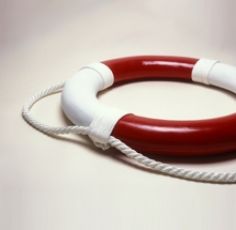Press Room

Crisis: How to Weather the Tsunami
The financial and economic crisis started in 2008 has hit like a tsunami, striking national firms and transnational corporations alike. The impact was sudden and caught many businesses unaware. How many and which kind of firms have survived the disaster and managed to stand up again? How did they do it? Can we learn from these best practices? These are the questions a SDA Bocconi research study (http://learninglab.sdabocconi.it/volare) on business resilience sought to answer.
Companies capable of maintaining solid and constant performance, in spite of external shocks, are the most resilient. The study looked at the most resilient firms in seven industries. In the car industry, the top ranked companies are Audi, Porsche, and Hyundai, for instance. In pharma, the most resilient corporation has proven to be Novo Nordisk, while in the banking sector, at the top of the list we find Nova Scotia and Santander. What emerges from the study is a healthy return to prudent management, which can summarized by five rules to be implemented in order to improve business resilience.
The first rule says that internationalization needs to be focused. In order to be resilient, you shouldn't enter all world markets, but you must choose a few markets that are in line with your core business, never underestimating the leverage given by your domestic market. It used to be: think global, act local; it now is: think regional, act local, forget global.
The second rule is about niches: focusing on areas of expertise and few products allows you to better defend yourself. For example, Novo Nordisk only focuses on diabetes and biopharmaceuticals. Many multinationals underestimate the importance of occupying market niches.
The third rule is about decision-making: too many people directly reporting to the CEO create organizational overlaps and taking decisions becomes a problem. Usually, resilient companies have less than 15 people directly reporting to the corporate leader. A less rigid and bureaucratic structure enables fast decision-making with controls given by the direct knowledge of individuals.
Fourth rule: the most resilient firms are those that focus on customers rather than shareholders. They care about their consumers even if it means forsaking short-term profits. This is the case of Hyundai which in 2008 launched the Hyundai Insurance program, that enabled customers to give back the car they had bought during the previous year, if the owner had suffered from job loss or other economic damage.
Fifth rule: companies are more resilient if they well define their values, often deriving from the country of origin. German car companies are acknowledged the world round for innovation, efficiency, precision. Nestlé bases its success on integrity, honesty and precision, seen as part of its Swiss heritage. Authenticity based on strong values not only fosters team spirit within the firm, but makes a company more credible in the eyes of consumers, who in these times of crisis are more careful in their purchase choices.
Universita' Bocconi
Phone +39-02.5836.2330
Mobile +39-335.123.1716







